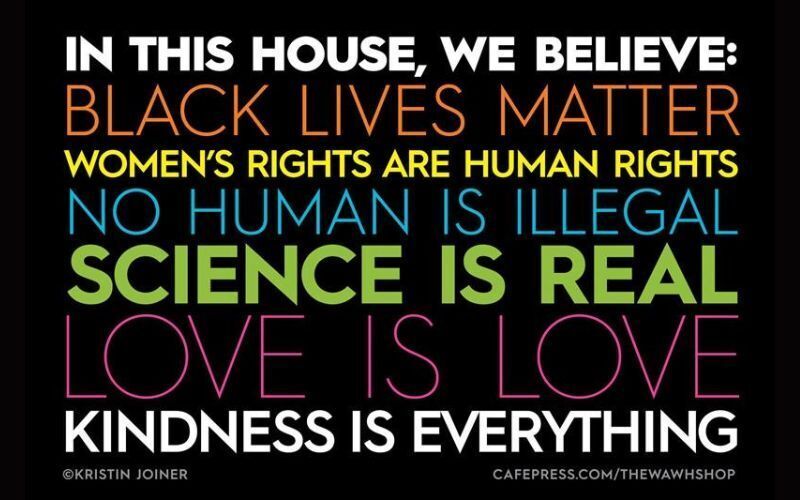Compassion is no longer an option—it is the key to our survival. If our religious and ethical traditions fail to address these challenges, they will fail the test of our time.
~ Karen Armstrong
The Test of Our Time
Religions and spiritual traditions have provided humankind with a variety of paths to personal enlightenment, various teachings for developing a relationship with an entity or entities outside ourselves in a universe full of mystery, and to a number of scriptures that not only tell the story of these paths and teachings but also guide us in how to live in community with other human beings and the world we inhabit.
The seed for the Charter for Compassion is this latter point—the idea that all world religions share a common thread about how to relate to other human beings—our mothers and fathers, our families, our communities, as well as the strangers beyond our boundaries.
Charter founder Karen Armstrong, who has studied and written widely about world religions and religious traditions, urges a more global perspective by all those involved in particular religions, faith traditions, and interfaith efforts. That global perspective is the realization that all human beings—not just those with whom we share a community urgently need our compassion, and the conviction that we must act to provide such compassion wherever there is suffering.
Mission
Recognize that “the principle of compassion lies at the heart of all religions, ethical and spiritual traditions, calling us always to treat all others as we wish to be treated ourselves.”
Vision
- To restore compassion to the center of morality and religion
- To return to the ancient principle that any interpretation of scripture that breeds violence, hatred or disdain is illegitimate
- To ensure that youth are given accurate and respectful information about other traditions, religions and cultures
- To encourage a positive appreciation of cultural and religious diversity
- To cultivate an informed empathy with the suffering of all human beings—even those regarded as enemies
Goals
It is essential to engage in ongoing dialogue, reflection, and adaptation when defining goals and strategies for religion, interfaith, and spirituality for everyone. By actively involving diverse voices and perspectives, we can work towards fostering greater understanding, empathy, and respect among individuals of all backgrounds, ultimately contributing to a more inclusive and peaceful world.
- Prioritize inclusivity and respect for individuals of all religious and spiritual backgrounds, including those who identify as non-religious or secular.
- Create an environment that welcomes diverse perspectives, promotes dialogue, and fosters understanding among different faith traditions and spiritual practices.
- Promote interfaith dialogue and cooperation as a means to foster mutual respect, build bridges, and address common societal challenges.
- Encourage opportunities for individuals from different religious and spiritual backgrounds to come together, share their beliefs, and find common ground for collaboration.
- Recognize the importance of individuals' autonomy in matters of faith and spirituality, while also advocating for the rights and dignity of all individuals, regardless of their religious or non-religious beliefs.
Strategies
- Encourage discussions and exploration of ethical and moral frameworks that transcend religious and cultural boundaries.
- Focus on shared values such as compassion, empathy, justice, peace, and sustainability, which can serve as a common ground for collaboration and positive social change.
- Promote education and awareness about different religious and spiritual traditions, fostering a climate of understanding and appreciation for diverse beliefs.
- Encourage religious literacy programs, interfaith educational initiatives, and opportunities for interfaith encounters at all levels, including schools, universities, community organizations, and religious institutions.
- Emphasize the role of religion, interfaith, and spirituality in addressing social injustices and promoting social welfare.
- Encourage individuals and communities to engage in acts of service, advocacy, and solidarity to alleviate suffering, promote equality, and contribute to the well-being of society as a whole.
- Prioritize engaging young people in discussions and initiatives related to religion, interfaith, and spirituality. Foster platforms for youth leadership, intergenerational dialogue, and mentorship to ensure the continuity of inclusive and compassionate values for future generations.
- Develop strategies to address religious extremism, radicalization, and interreligious conflicts. Promote dialogue, education, and community initiatives that foster understanding, challenge stereotypes, and build resilience against extremist ideologies.
- Recognize the interconnectedness of spirituality, faith, and the environment. Encourage religious and spiritual communities to embrace environmental stewardship, sustainable practices, and a sense of responsibility towards the natural world.
- Foster collaboration and partnerships with religious leaders, faith-based organizations, interfaith networks, secular organizations, and other stakeholders.
- Build coalitions and alliances can strengthen collective efforts, amplify the impact of initiatives, and promote a more inclusive and harmonious society.






